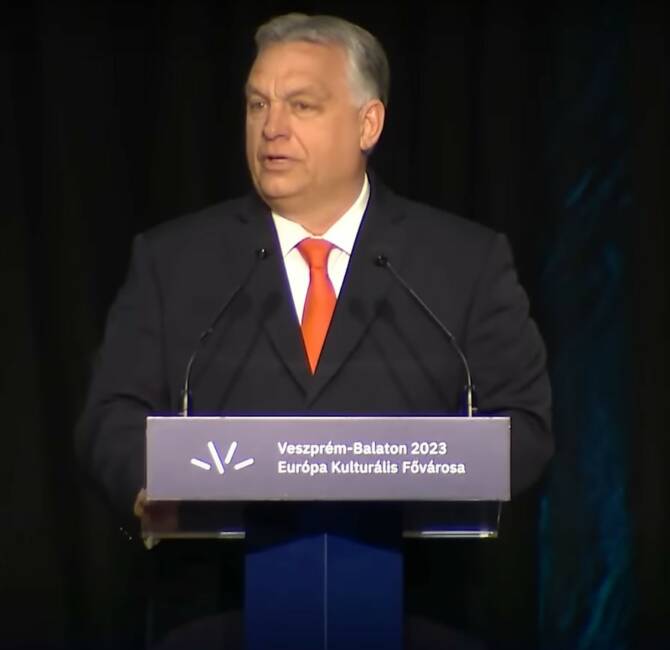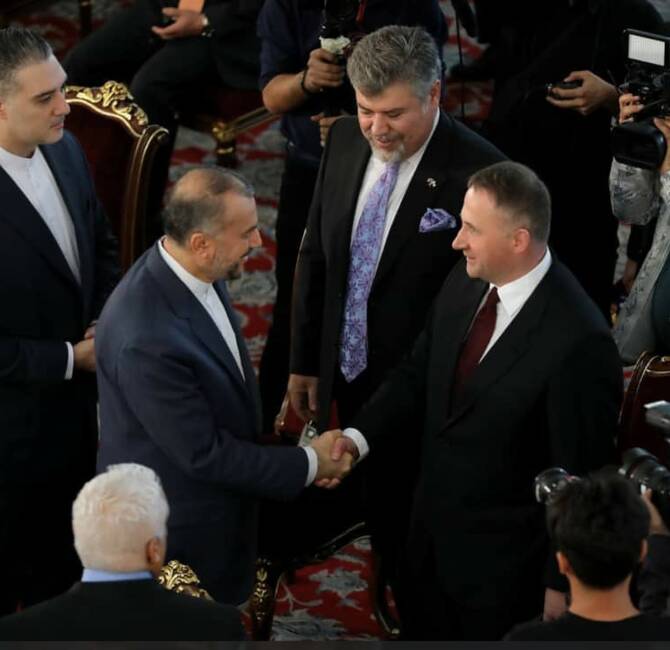Poland/Baltic countries/Ukraine – Since the beginning of the Russian aggression against Ukraine on 24 February, Polish leaders have been at the centre of several actions organised to show Central Europe’s solidarity with Kyiv. After a first visit to Kyiv by Prime Minister Mateusz Morawiecki with the leaders of Czechia and Slovenia, Polish President Andrzej Duda and his counterparts Alar Karis of Estonia, Egils Levits of Latvia, and Gitanas Nausėda of Lithuania travelled to the Ukrainian capital on 13 April to give their support to the government and people of Ukraine.
“Helping this heroic nation overcome the horrors of war”
The purpose of the visit was summed up in Nausėda’s statement:
“In Kyiv, with the presidents of Poland, Estonia, and Latvia, we expressed our full support to President Zelensky.
We will continue advocating for Ukraine’s membership in the European Union and helping this heroic nation overcome the horrors of war. Unity is our strength. We will stand with Ukraine until victory.”
This new, strong gesture from neighbouring countries was once again welcomed by Ukrainian President Volodymyr Zelensky: “I would like to thank the great leaders of Poland, Lithuania, Latvia, and Estonia, who are always at our side”, he said.
“I want to thank those great leaders of great countries who are always side-by-side with us and who have from the beginning been first in everything that supports Ukraine (…) which must become a member of the European family.
(…) I am convinced that these four countries will be the first on all the pages of history in the future, and we have a great future, because with such partners and friends, we will certainly win.”
“This is not war, this is terrorism”
After the group visited, among other places, Butcha, Borodzianka, and Irpine, which are towns on the outskirts of Kyiv that were almost completely destroyed in the first weeks of the war, Andrzej Duda, speaking from Kyiv, took a stand on what he had seen: “We saw a face [of war] which it is not possible to understand and to accept. (…) This is not war, this is terrorism.
If someone sends planes and soldiers to bomb residential areas and kill civilians, it is not a war. It is an atrocity, it is banditry, it is terrorism. This is a face of Russia’s attack against Ukraine which we can never accept.
(…) In the 21st century, killing women and children and bombing buildings is terrorism, banditry, breaking the rules of war, of international law, all the rules. (…)
Those who break these rules have no place in the international community today (…) We see that Russia has not changed. The mentality (…) has remained the same. We do not accept it. I hope the rest of the world will not accept it, either.”
These words were echoed by Latvian President Egils Levits:
“We have seen with our own eyes the horrors committed here in Ukraine by the Russians, near Kyiv. And we are convinced that they have committed war crimes.
According to Levits, “the entire chain of command, all the people, from the first person who gave the order to the last person who was the physical executor or perpetrator of these crimes” will have to answer to the International Criminal Court. “Ukraine needs immediate military assistance. (…) Ukraine is fighting for us and it is our duty to support Ukraine with all kinds of weapons, so that Ukraine can defend itself.”
Kyiv is ready to defend itself
Back in Poland, at the train station in Przemyśl, President Duda spoke about his visit during a press briefing: “It is certainly one of those visits that I will remember for the rest of my life, especially the impression made by Borodzianka. (…) It really makes a huge impression, especially if you see this view of the battlefield. (…) [Kyiv is] a city that is absolutely ready to defend itself. (…) There are barricades in the streets, trenches have been dug in the parks, there are bunkers and covers made of sandbags. (…)
The Russians are waging a total war against Ukraine, not only against the army and volunteers, but also against women and children. (…) These images cannot be described.
I have no doubt that we must give the Ukrainians all possible support and, as I said yesterday, [those who committed these] crimes must be brought to justice and the criminals must be condemned. (…) Not only those who kill directly, but also those who have enabled them to do so, as well as those who have given them such orders. (…) I firmly believe that Ukraine will win, and that it will remain a free, independent, sovereign country, our neighbour.
I would like to thank my fellow countrymen for helping our guests from Ukraine. They are refugees, yes, but they are our guests.”




